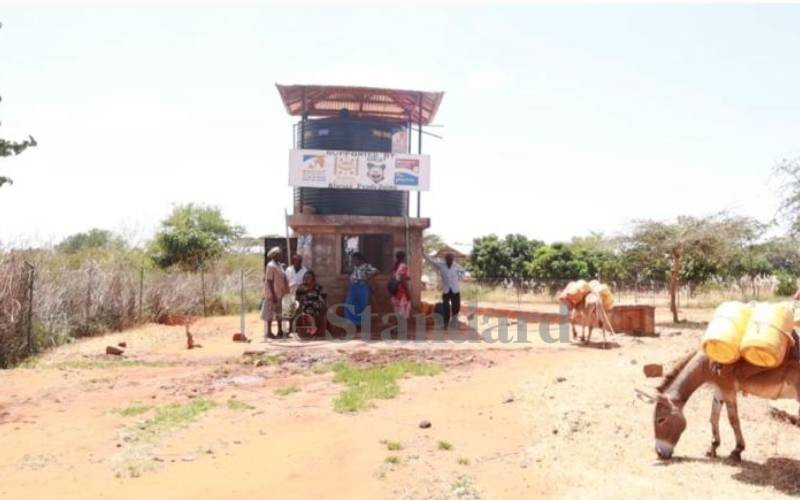×
The Standard e-Paper
Stay Informed, Even Offline

It is a Tuesday afternoon and the weather is scathing. We find Milkah Nekesa feeding a donkey. The two seem to be having a cordial session - the donkey flipping its ears as it feeds on hay, and Nekesa stroking its back.
The heat is taking a toll on Nekesa and she looks distraught. However, when she sees me, a smile breaks through to reveal a hardened village woman, full of optimism.